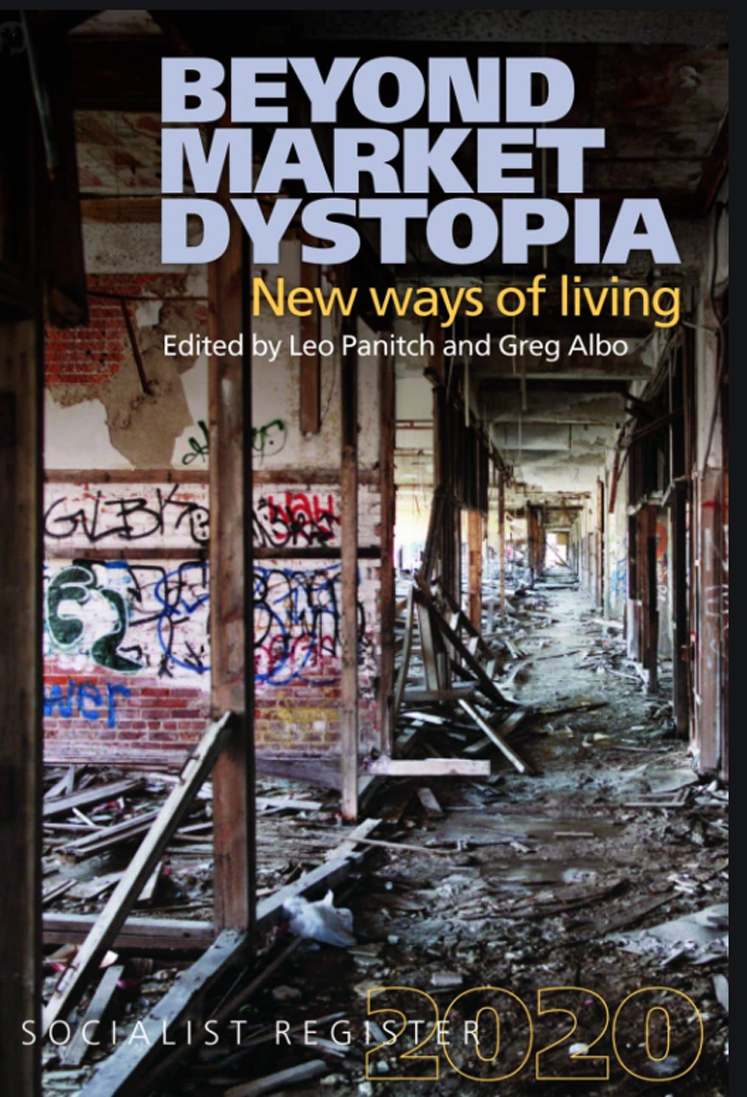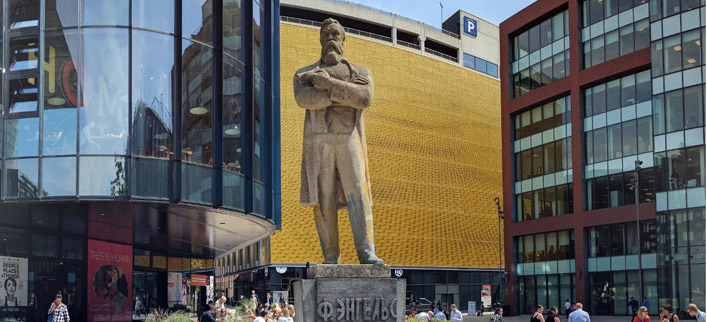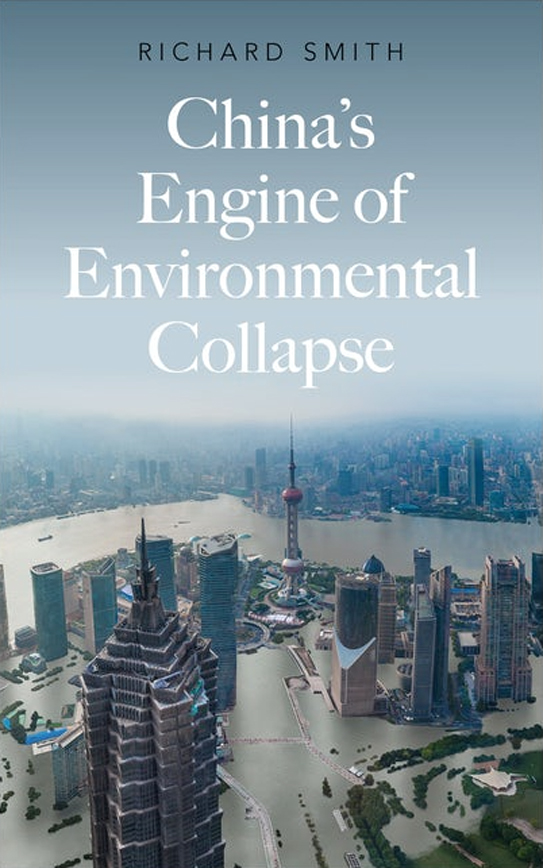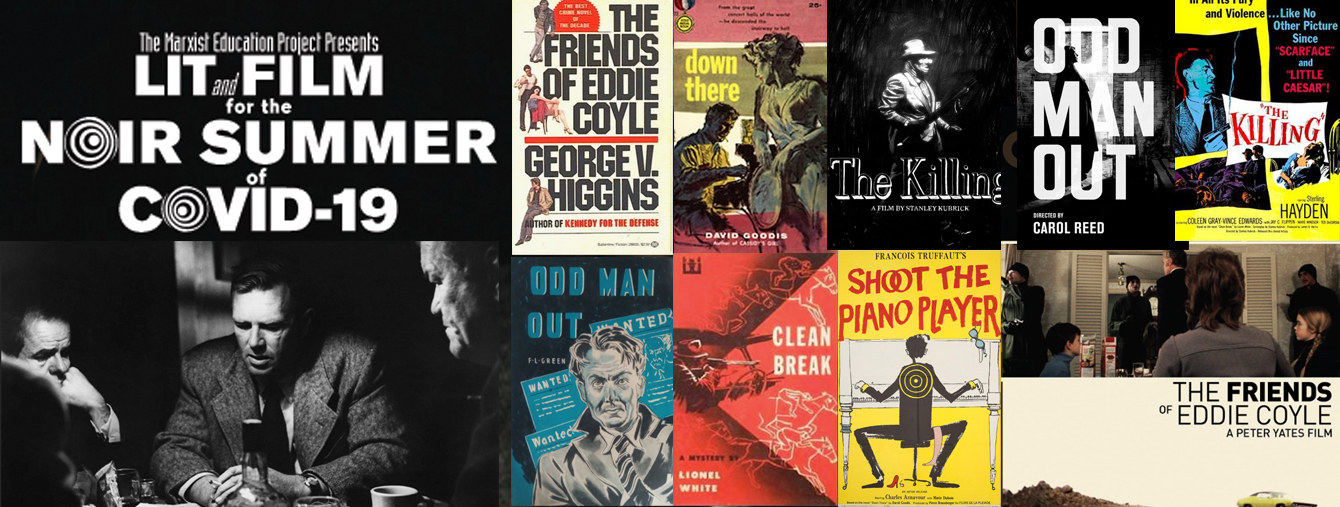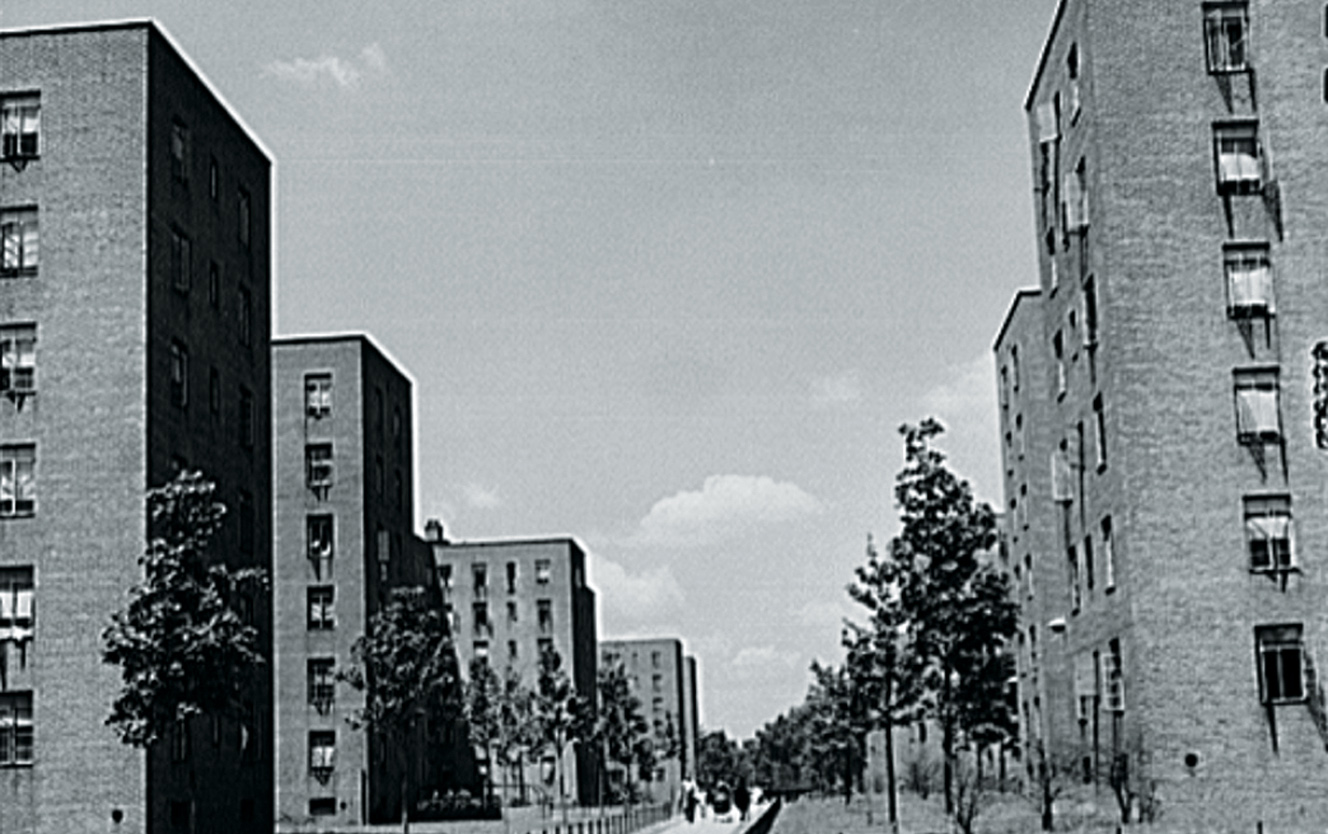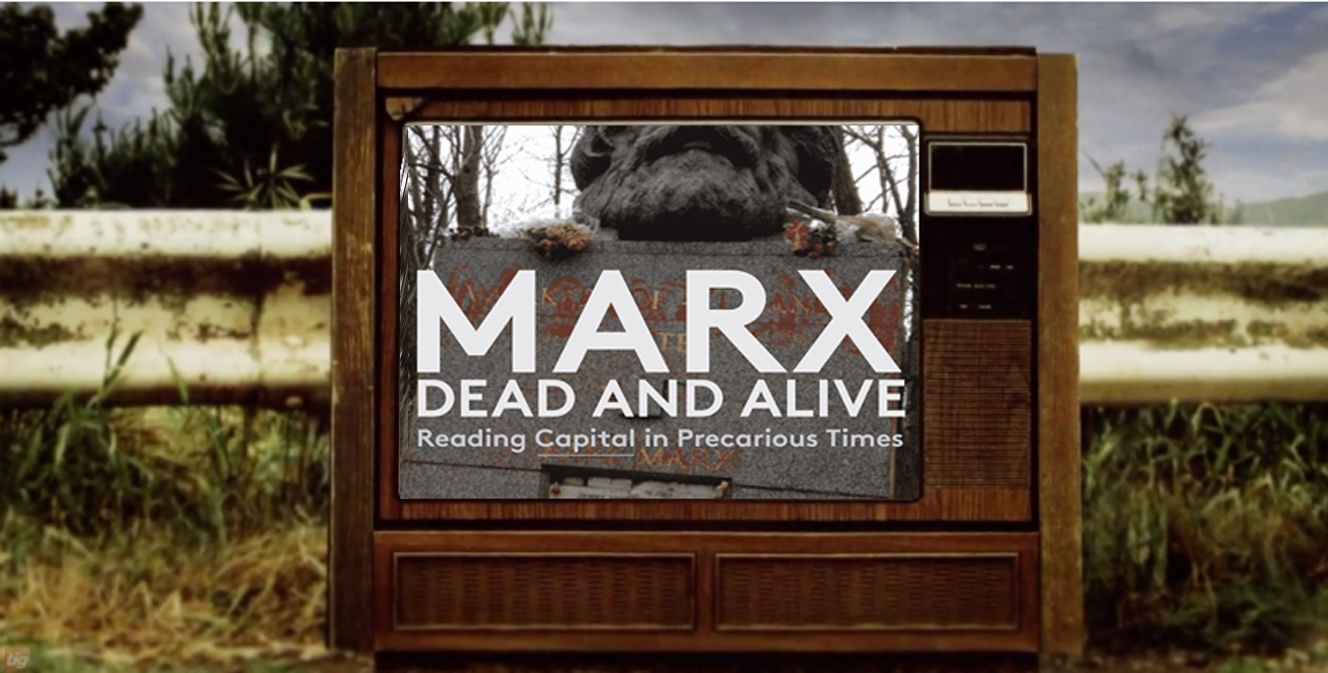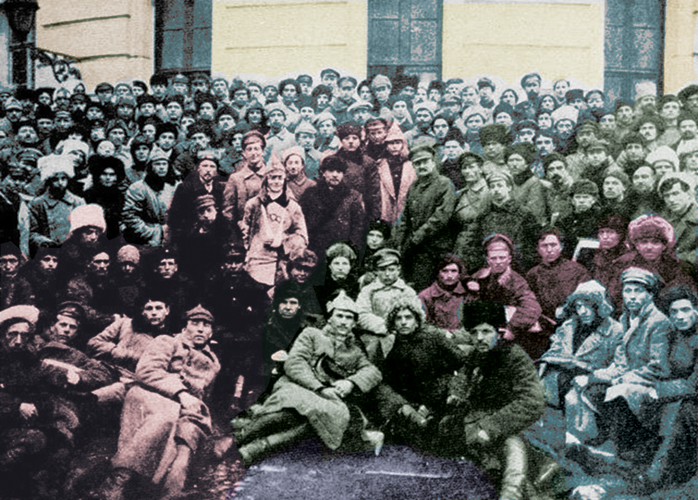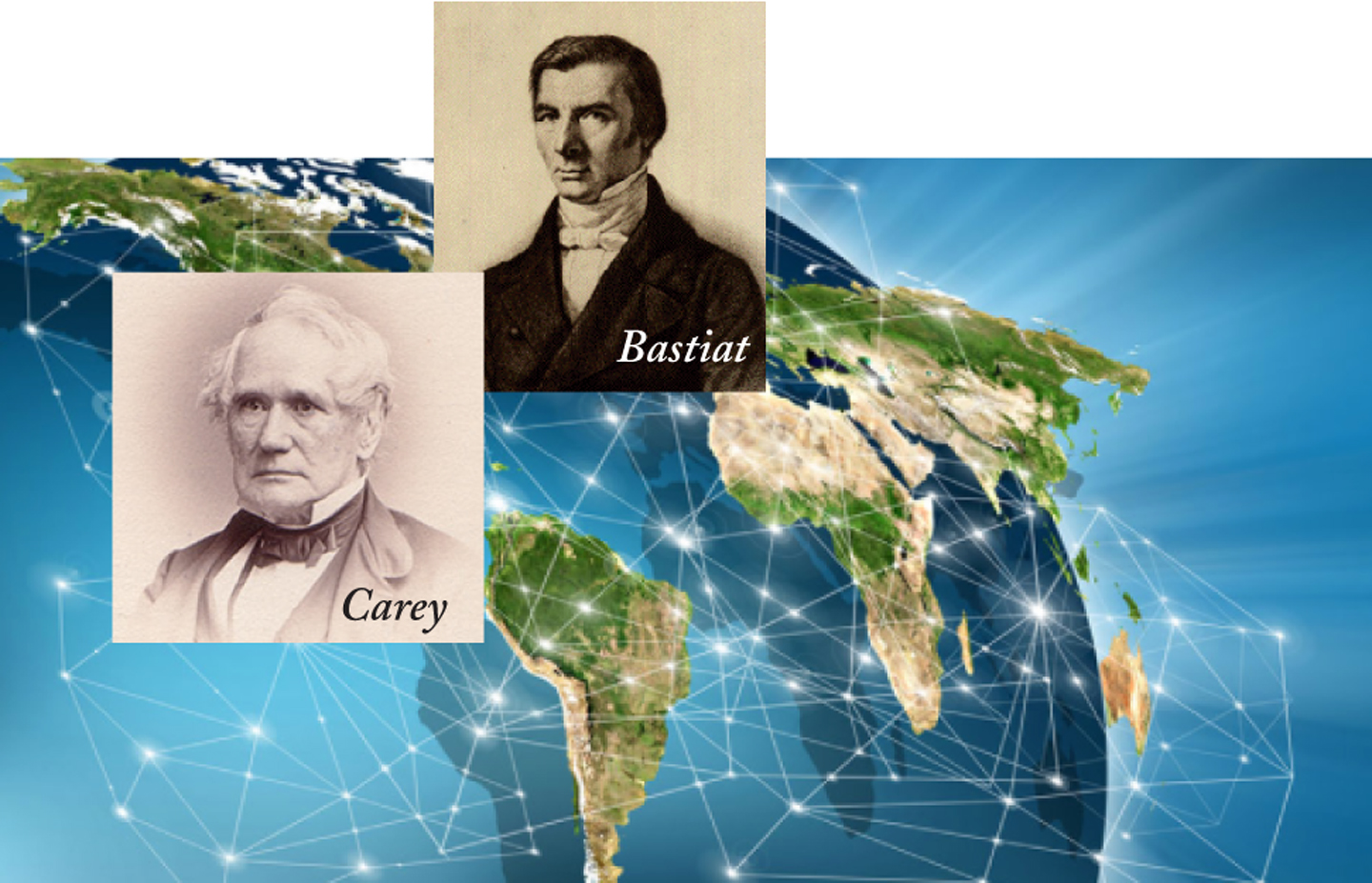Socialist Register 2020: Beyond Market Dystopia
Online: Zoom link will be provided to registered participantsFrom the editors Greg Albo and Leo Panitch: By challenging our contributors to address what are the actual and possible ways of living in this century, we saw this as way of probing how to get beyond the deep contradictions of neoliberal capitalism. We did not want contributors to conceive their remit as future-oriented per se, but rather to see their mandate as locating utopic visions and struggles for alternate ways of living in the dystopic present.
Communism in the Suburbs?/Retroactive Utopia of Socialist City
Online: Zoom link will be provided to registered participantsROGER: The core message here is the need to focus on the small and hidden histories, the buried stories of the everyday, the extinguished but smoldering fires at the grass roots of urban society. OWEN In the center of Manchester, you can find two artefacts of the Soviet Union’s attempt to fuse art, architecture and everyday life. One is now fairly wellknown. Standing in Tony Wilson Square, a developer-owned ‘Private Public Space’ standing in front of the arts center ‘Home’, facing various new luxury office and residential units, is a statue of Friedrich Engels.
The 2020 Socialist Register: Market Dystopia BOOK for series
Online: Zoom link will be provided to registered participantsThis is where you are easily able to purchase the Socialist Register 2020. Our product button on the WordPress site needs modification so this book purchase is listed under events. Price includes shipping. As a back-up to your order, please email your address to info@marxedproject.org
China’s Engine of Environmental Collapse
Online: Zoom link will be provided to registered participantsAs the world hurtles towards environmental oblivion, China is leading the charge. The nation's CO2 emissions are more than twice those of the US with a GDP just two-thirds as large. China leads the world in renewable energy yet it is building new coal-fired power plants faster than renewables. Richard contends that nothing short of drastic shutdowns and the scaling back of polluting industries, especially in China and the US, will suffice to slash greenhouse gas emissions enough to prevent climate catastrophe.
21st Century Communists of the Commons and Contemporary Proudhonism
Online: Zoom link will be provided to registered participantsThe sum of what the 21st Century Proudhonists put forth as innovation, is instead prey to a series of misunderstandings – of the concept of the commons itself, of contemporary capitalism whose dynamics forms the backdrop of their project and key economic and political ideas of Marx whose authority they seek to attach to their project.
Lit and Film: Noir for the Summer of Covid-19
Online: Zoom link will be provided to registered participantsContinuing in the MEP LITERATURE GROUP summer tradition, we will once again delve into Noir genres– but with a twist! Starting August 6, we will read four books and watch the movies that are based on them. Please join us for four books with the four movies that resulted from them.
Capital, Volume 3, Part 7, the last chapters of volume 3
Online: Zoom link will be provided to registered participantsThe study of Volume III is essential to understanding the complex dynamics at work in the present realities we are facing and how these realities are the necessary results of the inner logic of capital. In this moribund stage of late capitalist/imperialist development we see the rise of rentier and finance capital—the introduction of financial instruments being used to make money make more money, jumping over and above the actual real wealth produced by trading on future wealth (derivatives and other forms of fictitious capital); overriding supply and demand as a price mechanism in such necessities as foodstuffs so that their prices continuously rise resulting in more poverty and starvation on a world scale and here in the US; turning new technologies into means of collecting rents—the internet, mobile devices; expropriation of taxes paid by the working class to developers who are often tax exempt while our city and state governments give them tracts of our physical space; commodification of debt; privatization of public spaces, properties and institutions; foreclosures; and the list goes on.
Multi-Month Pass: Now through Dec 31, 2020
All VenuesFor a one-time sliding scale fee of $150, $200, or $250 attend any and all classes and events of The Marxist Education Project. For $50 more ($200, $250 or $300) bring a guest as often as you would like to the classes, films and events between now and May 31, 2021.
Pre-Capitalist Economic Formations
Online: Zoom link will be provided to registered participantsRadhika will propose that Marx’s purpose in these investigations and commentaries had nothing to do with either a stagist or a determinist view of history. Against these accusations, often levelled at Marx and often put forth by the exertions of many a “Marxist”, there are reasons to believe that Marx was going beyond the stagism and determinism of received accounts to something far more sophisticated and radical.
Commodity Fetishism vs Capital Fetishism
Online: Zoom link will be provided to registered participantsThe focus will be on the analysis of commodity fetishism, in an effort to contribute to the comprehension of the different dimensions of this concept, especially in Marx’s Capital. For this purpose, we will pursue the following course: There will be an overview of various Marxist approaches to the subject. Subsequently, we are going to consider these approaches in the light of Marx’s analysis.
Social Reproduction and the City
Online: Zoom link will be provided to registered participantsFeminist political economy and feminist welfare state scholarship have not focused on the urban as a scale of analysis, and critical approaches to urban neoliberalism often fail to address questions of social reproduction. To address these unexplored areas, Black unpacks the urban as a contested site of welfare state restructuring and examines the escalating crisis in social reproduction. He lays bare the aftermath of the welfare-to-work agenda of the Giuliani and Bloomberg administrations.
Marx Dead and Alive: Reading Capital in Precarious Times
Online: Zoom link will be provided to registered participantsIn Marx, Dead and Alive—a book that begins and ends beside Marx’s recently violated London graveside—Merrifield makes a spirited case for a critical thinker who can still offer people a route toward personal and social authenticity.
Realistic Metaphysics and the Materialist Conception of History
Online: Zoom link will be provided to registered participantsMarxism's central preoccupation has been that of *class* consciousness. Marx spoke of the working class’s need to transform itself from a class *in itself* (en sich) into a class *for itself* (für sich). After two decades of revolutionary defeats and counter-revolutionary triumphs Trotsky described the situation as “the crisis of proletarian leadership.”
But these were prescriptions, now plainly further from realization than ever. In describing the proletariat as the “universal class,” Marx projected that by establishing its dictatorship (ie., radical democracy) in the proximate interest of all its members, the proletariat begins the human historical project of complete transcendence of class society. The present crisis, however, demands that this concept of “universal” be deepened and enriched. The politics based on consciousness of proximate material interest must give way to the politics of a *planetary* consciousness. The final line of our anthem, “l’Internationale sera le genre humain,” should now be taken literally.
Considerations on Bolshevism Before Stalinism
Online: Zoom link will be provided to registered participantsQuestions such as these are being discussed: Were the Bolsheviks inherently authoritarian? What was 'democratic centralism'? Is the Bolshevik type organization necessary for revolutionary change? What exactly was the role of the Bolsheviks in the revolution? What were the Soviets? How did the soviets come into being? Did soviets represent a higher form of democracy?
The Origins of Geopolitical Economy in Marx’s Remarks on Carey and Bastiat
Online: Zoom link will be provided to registered participantsIn recent years, geopolitical economy has become a term for the properly historical-materialist analysis of international affairs that can successfully comprehend the evolution of the capitalist world order down to the contemporary age of multi-polarity by placing the nation-state as centrally in the analysis of capitalism as class. This interpretation is embedded in Karl Marx’s thinking, though not fully developed there. Perhaps its clearest expression can be found in his fragmentary comments on the “Yankee” mercantilist economist, Henry Carey, in the final pages of the “Grundrisse”.

